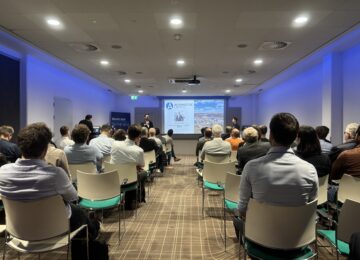Energy bill debate: legal basis for new energy system
In recent weeks, the House of Representatives has been discussing the proposal for the new Energy Act. This bill replaces the current Electricity Act 1998 and the Gas Act, by bringing together the rules for the transport and supply of gas and electricity in the Netherlands. The bill has a great impact on energy transition and the organization of electricity and gas markets. Plenary consideration of the bill will take place in week 20.
Definition of energy storage included
The bill includes a definition for energy storage in the electricity system. This definition follows the directive from the European Union. With the legal establishment of a definition for sustainable energy storage, techniques for the storage and conversion of electricity, heat and molecules finally get their own status, where previously this was always considered as a buyer. This provides an opportunity for future policy to take better account of the dual role of energy storage as both producer and consumer of energy. Energy Storage NL has long argued for a separate legal status for storage, and is pleased that this appears to be settled with the Energy Act.
Cable Pooling becomes possible, conditions still uncertain
The bill makes clear that Cable Pooling, renamed "cable bundling" by Member Postma (NSC), should become possible for all installations. This ensures that in addition to solar and wind, energy storage and consumers can use the same connection. Energy Storage NL is pleased that this proposal takes the step of getting started with connection sharing. Previously the ACM already brought out that they want to tolerate Cable Pooling in anticipation of the law, as long as the conditions in the bill are adhered to. Discussions can be held with the grid operator for which projects this is an option.
During the discussion of the energy law it appeared that there is still a lot of discussion about the conditions for cable bundling. For example, it is permitted to place a maximum of four WOZ properties behind one connection. In addition, parties may not enter into mutual supply agreements, otherwise the construction would be legally classified as a closed distribution system (GDS). Minister Jetten (Climate and Energy) has promised to further explain to the House how the preconditions are defined when the measure is worked out. ESNL is currently in talks with policymakers to get more clarity on this.
Powers of grid operators
During the debate, members Kröger (GL-PvdA) and Grinwis (Christian Union) did a remarkable proposal to expand the powers of grid operators. They submitted an amendment to the bill that would allow grid operators to become active in investing in and operating production and energy storage facilities in addition to their core tasks. This would give more flexibility in implementing the energy transition, according to the MPs.
In a response, the minister announced that he considered the amendment to be in conflict with European regulations. This stipulates that network operators may only operate systems themselves under very strict conditions, with these being released to the market as soon as possible. MPs Bontenbal (CDA) and Erkens (VVD) endorsed this criticism, adding that the grid managers already have their hands full with the core task of grid reinforcement and maintenance.
Rates and cost reflectivity
In the debate, Member Grinwis (ChristenUnie) called attention to the cost reflectivity of network tariffs. He advocates taking more account of system benefits when setting tariffs. Grinwis: "When it comes to energy storage, for example, I wonder to what extent not only the costs but also the benefits are included in the principles for the tariff methodology. After all, the system becomes more efficient." Earlier, Member Erkens (VVD) asked that social benefits be included in the tariffs for energy storage and electrolysis. In a response, the minister stated that the ACM has exclusive authority to set tariffs based on the frameworks in European regulations and that this involves making assumptions about the grid usage of different connected parties. ESNL believes that more benefits can be included in these assumptions and is currently researching the extent of these benefits.
Several members of parliament also asked for clarity on the future development of network tariffs. Because of the very high increases in recent years, companies have a great need for a more predictable development. The minister shares this need and is in talks with the network operators to provide more long-term insights into this.
In week 20, the House of Representatives will hold a plenary debate on the bill and the various amendments and sections of the law are discussed.
Questions or comments following this post? Please email to info@energystoragenl.nl





